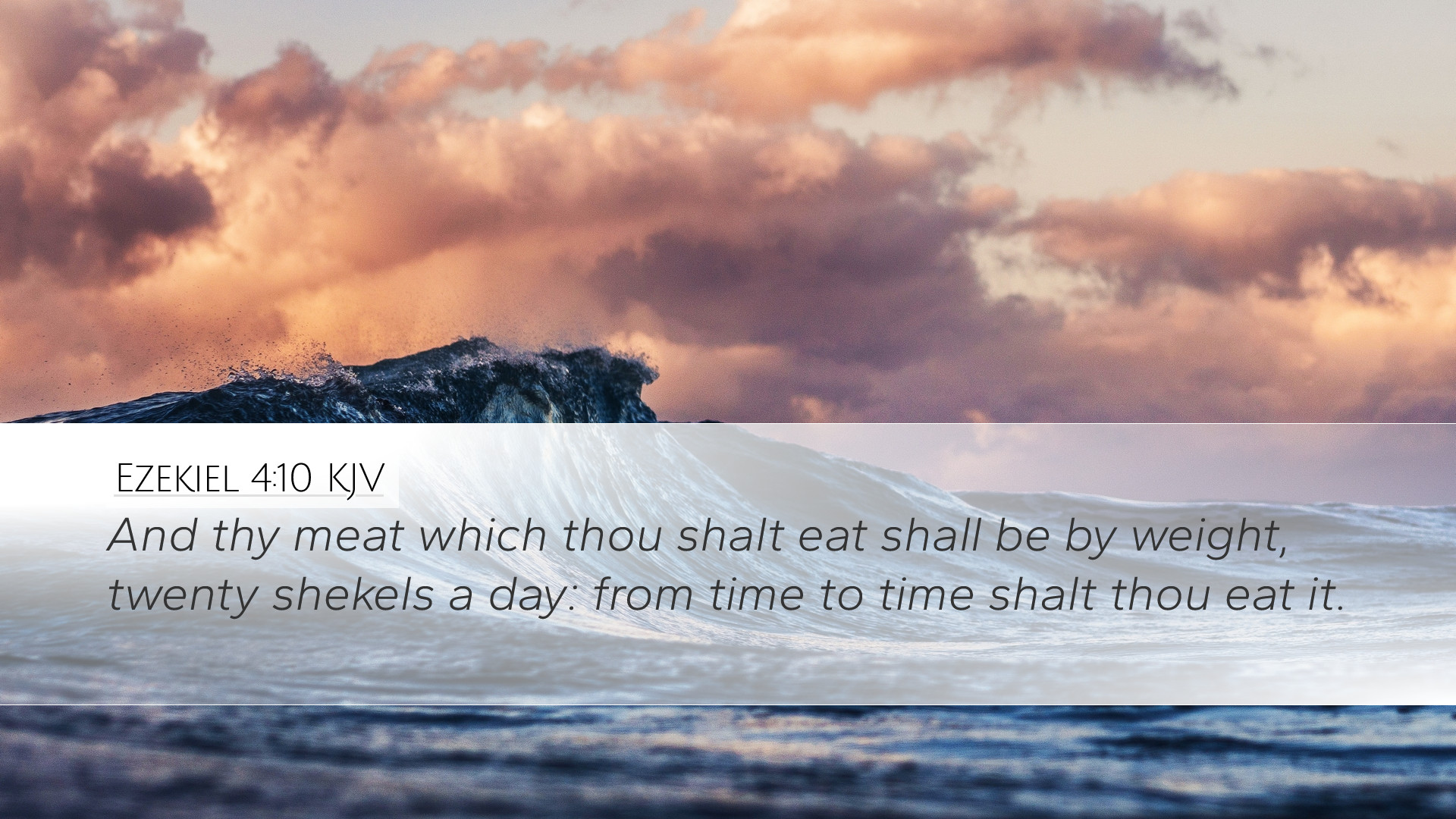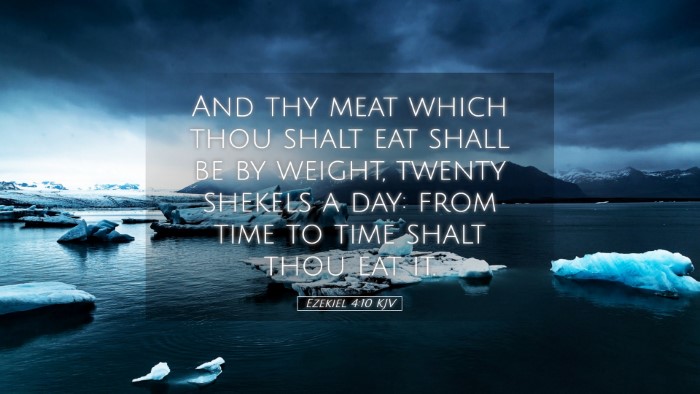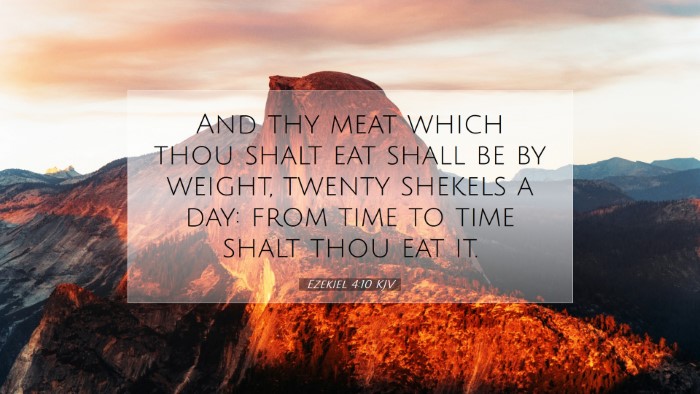Ezekiel 4:10 - Commentary and Insights
Verse: Ezekiel 4:10 (KJV) - "And thy meat which thou shalt eat shall be by weight twenty shekels a day: from time to time shalt thou eat it."
Introduction
The verse from Ezekiel 4:10 is profound in its implications for understanding the nature of prophetic symbolism and the themes of judgment and sustenance in Scripture. This commentary draws insights from notable public domain resources, including those by Matthew Henry, Albert Barnes, and Adam Clarke, offering a rich exploration of the text.
Contextual Overview
Ezekiel, a prophet during the Babylonian exile, was tasked with delivering messages from God that often included symbolic acts. The chapter emphasizes the dire circumstances of Israel due to their unfaithfulness, and this stage of prophetic action was aimed at illustrating the coming judgment. Here, God instructs Ezekiel to measure his food, illustrating the scarcity that would befall Jerusalem.
Exegesis of the Verse
In this verse, the specific measurement of "twenty shekels a day" highlights the theme of limitation. The food rationed here denotes the challenging conditions that the people of Israel were to experience. Let us delve deeper into the meanings attached to the components of this verse.
Weight of Food
Matthew Henry notes that the weight signifies God's judgment on Jerusalem. The restriction on food serves as a serious metaphor for the spiritual famine due to the people's rebellion. Such limitations were meant to represent the severity of their sin and the consequent divine displeasure.
Symbolism of Daily Rations
Albert Barnes emphasizes the ritualistic aspect of the measurements, stating that these rations not only reflect physical sustenance but also symbolize the spiritual nourishment that would be lacking among the Israelites. The days of scarcity remind believers of their need for constant reliance on God.
Divine Instruction and Human Response
Adam Clarke elaborates on the way God commands Ezekiel to eat. The act of eating by weight suggests that God closely monitors His people and their conditions. This instruction also carries a dual response; while it is a grim reminder of impending judgment, it also offers hope by presenting God as present even in hardship.
Theological Implications
This verse, while seemingly simply about food and rationing, urges deeper theological reflection. It serves as a microcosm of the broader narrative of God's relationship with Israel.
- The Sovereignty of God: The precision of the measurements indicates God's ultimate control over circumstances, reinforcing the idea that God governs both the spiritual and physical realms.
- The Theme of Judgment: The limitation in diet reflects the consequences of sin. It serves as a poignant reminder that straying from God leads to spiritual and physical decline.
- Reality of Spiritual Famine: Just as the people experienced physical scarcity, there is a looming spiritual famine for those who turn away from the living God.
- Call to Dependence: The rations symbolize a call to depend on God for sustenance, emphasizing that spiritual needs are critical and must be prioritized.
Applications for Pastoral Ministry
For pastors and teachers, Ezekiel 4:10 offers a wealth of application points:
- Preaching on Judgment: Use this verse in sermons that address the consequences of sin, reinforcing the need for repentance.
- Encouraging Dependence on God: Foster a culture within the church that encourages members to rely on God daily, much like Ezekiel had to rely on his meager rations.
- Teaching on God’s Sovereignty: Highlight God's control in all circumstances, reassuring congregants that He is present during times of hardship.
- Calling to Spiritual Awakening: Challenge your congregation to examine their hunger for God; are they filling up on the things of this world rather than the nourishment that comes from Him?
Conclusion
Ezekiel 4:10 serves as a poignant reminder of the intertwined nature of physical and spiritual sustenance. The reflections from Matthew Henry, Albert Barnes, and Adam Clarke provide a robust understanding of the text and invite us, as modern readers, to reflect on our own nourishment—spiritually, physically, and communally. This verse not only provides a historical context but also a timeless call to seek God's provision and recognize the gravity of our choices in faith.


